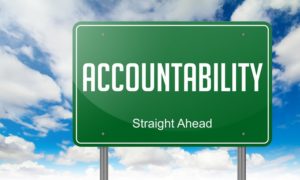 A man goes to a baseball field and shoots up the place where congressmen and their staffers are practicing for a charity baseball game. First, he asks one of the congressmen who is leaving whether the ones practicing are Democrats or Republicans. Glad to hear they are Republicans, whom he has castigated on social media and seeks to wipe off the face of America, he opens fire, spraying the field and wounding four; one congressman remains in critical condition.
A man goes to a baseball field and shoots up the place where congressmen and their staffers are practicing for a charity baseball game. First, he asks one of the congressmen who is leaving whether the ones practicing are Democrats or Republicans. Glad to hear they are Republicans, whom he has castigated on social media and seeks to wipe off the face of America, he opens fire, spraying the field and wounding four; one congressman remains in critical condition.
The man who perpetrated the crime finally is taken down by police and dies shortly after at the hospital. Then the blame game begins.
Who is responsible for what this man did? Since he was a socialist and a follower of Bernie Sanders, is Sanders to blame? After all, Sanders has said some pretty harsh things about Republicans. Since the man hated Trump so much, perhaps Trump is the one who should be responsible because he “triggered” the man with his policies?
What’s the Biblical position?
Personal responsibility is an overwhelming theme in Scripture. We are responsible for the choices we make in life. No one forces us to make those choices. There can be influences upon us, things that push us in a certain direction, but when it comes down to choosing, that’s all on us.
There were influences on the man who decided to target Republicans. Some of those influences were way over the top in bitterness and hatred. There are people who are saying Republicans want everyone to die because they want to take away their healthcare. That’s one of the middle-of-the-road accusations. I won’t repeat the worst ones.
Yet those were influences only; he had to decide whether to follow through on them with a terrible deed. He died in his own sins; he’s responsible for what he did, regardless of what others said that might have egged him on.
 However, there remains some culpability whenever anyone descends into hateful diatribes. God holds them accountable for that.
However, there remains some culpability whenever anyone descends into hateful diatribes. God holds them accountable for that.
There is a difference, though, between vicious, hateful speech and truth-telling. As Christians, we are to speak the truth in love and we are called, as far as it depends on us, to be at peace with all men.
What’s the difference between truth-telling and hateful speech? Are we never, in our truth-telling, allowed to point out the real nature of certain philosophies and/or individuals who promote those philosophies?
Did I sin in numerous blogs when I disagreed with virtually everything Barack Obama stands for and how he conducted himself? Am I sinning now when I take Donald Trump to task for his character?
Have you ever looked carefully at Matthew 23? It’s a fascinating chapter wherein Jesus takes on the Pharisees in no uncertain terms. As you peruse that chapter, you find Him saying the following about them:
Woe to you, teachers of the law and Pharisees, you hypocrites! You shut the door of the kingdom of heaven in people’s faces. You yourselves do not enter, nor will you let those enter who are trying to.
Was Jesus over the top when He referred to them as hypocrites? Notice that He even said they were not entering into heaven. Was that an unjust judgment?
Further down in the chapter, He calls them “a child of hell,” “blind guides,” “blind fools,” and “a brood of vipers.”
My particular favorite is his characterization of them as “whitewashed tombs, which look beautiful on the outside but on the inside are full of the bones of the dead and everything unclean.” They appear to be righteous but are really “full of hypocrisy and wickedness.”
I gather from Jesus’s own example that we don’t have to pull our punches when pointing out sin. But here’s the catch: we can’t be hypocrites when we do so and we have to honestly seek to redeem those who are erring (check out chapter 7 of Matthew on proper judging). If we ever take satisfaction in merely telling people off and get a smug attitude about being right, then we’ve violated the spirit in which we are allowed to point out sin.
We all need to be willing to be truth-tellers, yet, at the same time, we must continually guard our hearts so that we carry it out in the proper spirit.
Each person is responsible for his/her own actions, whether in carrying out an evil deed or in using extreme language that might influence a person toward that deed.
